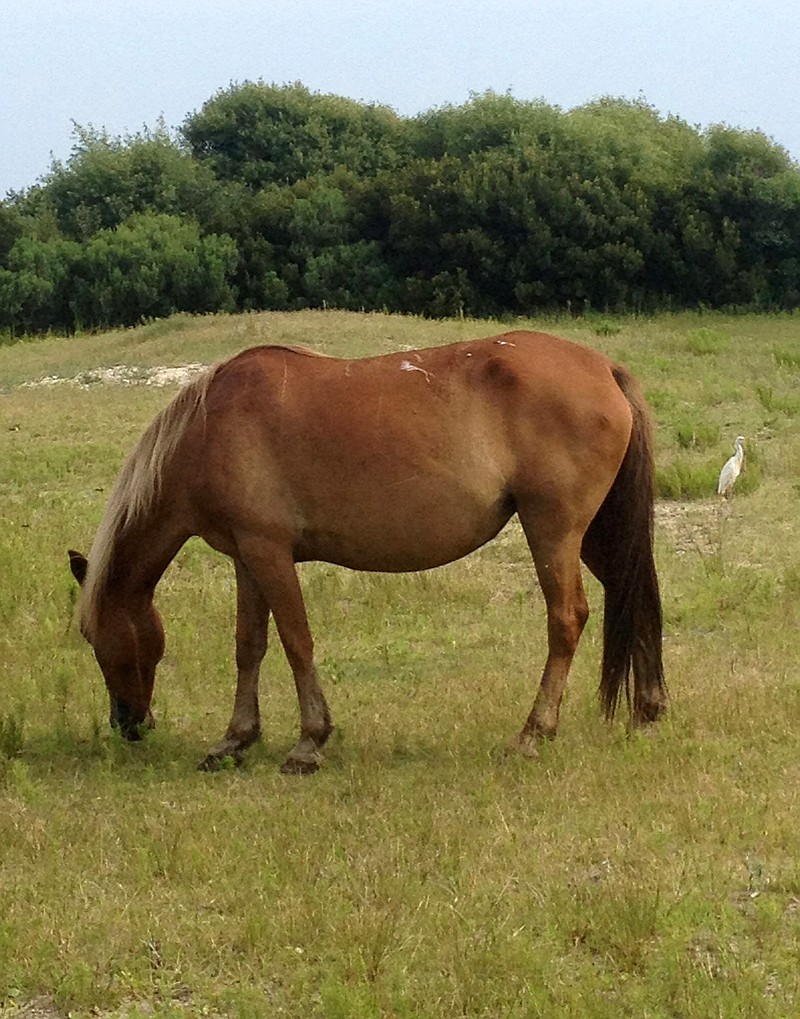CHARLOTTE, N.C.-North Carolina's internationally famous Outer Banks wild horses are facing yet another threat to their survival.
After years of struggling against disease and fast-moving vehicles, the wild Colonial Spanish Mustangs are now being endangered by tourists feeding them junk food, say experts.
Foreign foods, including even apples and carrots, can be deadly to the animals, according to a "No Feed, No Approach" campaign unveiled Friday.
"Wild horses cannot eat any food that is not from their natural habitat of beach grasses," says the Corolla Wild Horse Fund, which is behind the campaign. "The public is unaware that their snacks are harmful and often cause painful colic and may result in death."
Tourists driving through Corolla will now be greeted with a billboard and other signs warning: "Admire But Don't Feed! Apples and Carrots Kill Wild Horses."
The summer campaign aims to educate tourists and locals about the "dangerous of human interaction with the wild herd."
It is against the law to intentionally come within 50 feet of the wild horses, "so that means no petting or feeding," according to VisitCurrituck.com.
The horses were brought to the Outer Banks by early explorers and have roamed the Outer Banks for more than 400 years, historians say.
Among the greatest dangers to the horses are four-wheel-drive vehicles, which are allowed on some beaches in the area. One such vehicle ran over and killed one of the horses the first week of June, as the mare roamed among the dunes.
The incident drew national attention among horse lovers, when it was reported the dead mare's stallion stood over the body all night, even after it was covered with a tarp.
Twenty of the horses were killed by vehicles between 1985 and 1996, reported the Outer Banks Voice. In 1997, a fence was put up to keep the horses north of Corolla, and the herd has since grown to about 100, the Outer Banks Voice reported last month.

